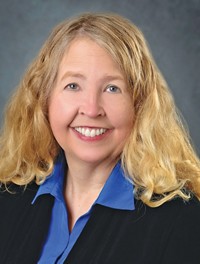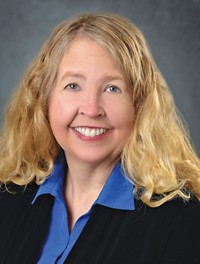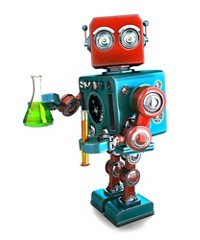Advertisement
Grab your lab coat. Let's get started
Welcome!
Welcome!
Create an account below to get 6 C&EN articles per month, receive newsletters and more - all free.
It seems this is your first time logging in online. Please enter the following information to continue.
As an ACS member you automatically get access to this site. All we need is few more details to create your reading experience.
Not you? Sign in with a different account.
Not you? Sign in with a different account.
ERROR 1
ERROR 1
ERROR 2
ERROR 2
ERROR 2
ERROR 2
ERROR 2
Password and Confirm password must match.
If you have an ACS member number, please enter it here so we can link this account to your membership. (optional)
ERROR 2
ACS values your privacy. By submitting your information, you are gaining access to C&EN and subscribing to our weekly newsletter. We use the information you provide to make your reading experience better, and we will never sell your data to third party members.
Policy
The new chemist
by Javier García Martínez
February 5, 2018
| A version of this story appeared in
Volume 96, Issue 6
This is a guest editorial by Javier García Martínez, professor of inorganic chemistry at the University of Alicante and cofounder of Rive Technology.
In 2012, George Dahl was a Ph.D. student at the University of Toronto. That year, he led the group that won the Merck Drug Discovery Competition. Remarkably, nobody in the group knew anything about chemistry or biology; they simply programmed their computers to recognize properties that scientists were not able to predict. More recently, professor Leroy Cronin at the University of Glasgow compared the ability of researchers in his laboratory with that of robots to discover and crystallize new polyoxometalates. His conclusions are disturbing: Machines outperform scientists both in their predictions and their ability to explore the crystallization space. So what role might chemists play in a future when machines outperform us in the ability to design and carry out experiments? Scientists’ creativity, critical thinking, and leadership skills will be increasingly important in highly automated labs and chemical factories. The best human qualities and the most advanced artificial intelligence are the basis of a new chemistry that cannot be predicted by merely extrapolating what we know today. However, for this opportunity to be fully realized, chemists should be able to talk to machines. Unfortunately, few chemists can actually code, let alone program a robot or write an algorithm to design and run a better set of experiments. Robotics or AI are rarely part of the chemistry curriculum, even at graduate school. This is especially worrisome considering that a recent report by Dell Technologies estimates that 85% of the jobs that will exist in 2030—when our current students will be in their early 30s—have not been invented yet but will definitely require those skills.
The chemical industry will be profoundly transformed by the convergence of technologies that defines the fourth industrial revolution. According to the World Economic Forum, the digitalization of the chemical industrywill create revenues in the $310 billion to $550 billion range, reduce CO2 emissions by 60 million to 100 million metric tons, and avoid 2,000 to 3,000 injuries over the next decade. This will require profound adaptations—and on a very short notice—in the workforce, leadership, and organization of a $5 trillion industry.
AI will help chemists make sense of the huge amount of data that we generate. Novel data visualization and digital learning tools will provide us with unprecedented capabilities and help us gain new and sounder insights by analyzing our experiments and available data. However, making new discoveries is only one step in the process of solving the problems we are facing today. For those innovations to have real impact, they must become commercial realities; and that happens only if there are chemists willing to take risks, create new companies, and lead the industry to a new era of exciting opportunities.
Despite our technological might, the global challenges are becoming more acute, urgent, and interconnected. We desperately need leaders who have vision, deep knowledge, and the ability to connect complex data, new information, and apparently unrelated ideas. It’s also critical they have empathy, great communication skills, and the ability to lead and inspire others. Now more than ever, scientists must assume their roles as opinion leaders and as role models for young people. If we want our opinions to be heard, we must participate in the key debates of our time; if we do not, others will talk about science in our place. Studying reality is important, but if we want to change it, we must get involved and inspire young people to become leaders who will make the solutions we propose a reality.
George Dahl is now a research scientist at Google. Many like him—innovating in other areas of science—will help us make new discoveries in the chemical sciences by broadening the range of tools and views available to us. But chemists will still have a major role to play: Just like finding the most active molecule for an intended target is far from having a cure for a particular illness, chemists will have to lead beyond basic discovery and invention and into building a better and more sustainable future. Are you ready for the challenge?
Views expressed on this page are those of the author and not necessarily those of ACS or C&EN.





Join the conversation
Contact the reporter
Submit a Letter to the Editor for publication
Engage with us on Twitter